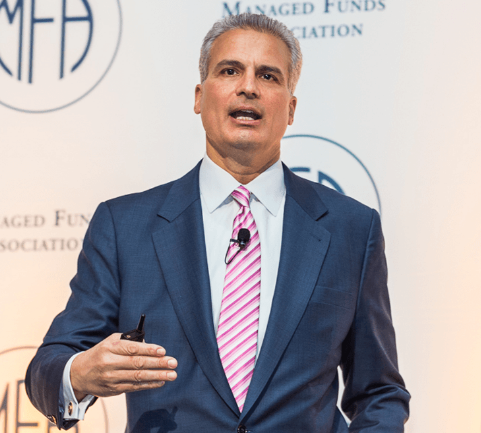
John Sitilides
- International Geopolitical & Geoeconomic Strategist
- Consultant to the U.S. State Department under Presidents Bush, Obama, Trump & Biden
- Media Commentator on National Security, Global Affairs, American Politics
- Senior Fellow for National Security at the Foreign Policy Research Institute (FPRI)
John Sitilides is Principal at Trilogy Advisors LLC in Washington, D.C., specializing in U.S. government relations, geopolitical risk, and international affairs. Delivering exclusive geopolitical risk reports, webcasts, and related products and services to institutional capital market and retail clients, he is a professional speaker at corporate, investor, and industry conferences, and before government, military and...
read the restJohn Sitilides is Principal at Trilogy Advisors LLC in Washington, D.C., specializing in U.S. government relations, geopolitical risk, and international affairs. Delivering exclusive geopolitical risk reports, webcasts, and related products and services to institutional capital market and retail clients, he is a professional speaker at corporate, investor, and industry conferences, and before government, military and intelligence community audiences, on geopolitical risk management and the business impacts of international security policies. He explores the complex geopolitical and geo-economic decisions that impact markets in Asia, Europe, the Middle East, and worldwide, helping corporate executives, investment managers and civic audiences better understand, anticipate, and mitigate risk.
Under a U.S. government contract since 2006, Sitilides is the Southern Europe Regional Coordinator at the Foreign Service Institute, the State Department’s professional development and diplomacy academy for American foreign policy professionals. He was Board Chairman of the Woodrow Wilson Center Southeast Europe Project from 2005-2011, following seven years as Executive Director of the Western Policy Center, an international relations institute specializing in U.S., NATO and EU interests in southeastern Europe and the Middle East, until he negotiated its 2004 merger with the Woodrow Wilson International Center for Scholars.
He has testified before Congress and is a frequent national security commentator on U.S. and international media such as Bloomberg News, CNN, FOX News, CNN International, Newsmax and NewsNation, and has interviewed or cited in the Wall Street Journal, New York Times, Washington Post, Washington Times, Politico, National Public Radio, Euromoney, Asia Times, Institutional Investor, South China Morning Post and other leading print and digital media.
His domestic client portfolio includes industry leaders in real estate development, home construction and agribusiness, along with aviation and emerging technology companies, with a specialization in environmental regulatory reform and private property rights protection. He launched his career in the U.S. Senate and on a series of successful political campaigns.
Sitilides serves on the Executive Committee and Board of Trustees of Leadership 100, a national Orthodox Christian foundation. He served on the Board of Directors of 3doo, Inc., a VR/AR media technology company; the Board of Directors of International Orthodox Christian Charities, a global humanitarian organization; the Board of Directors of Biovest International, developing personalized cancer immunotherapies; and the Board of Governors of the Advanced Imaging Society, promoting the global motion picture industry’s arts and technologies.
He is a member of the Association of International Risk Intelligence Professionals, the Intelligence and National Security Alliance, the Columbia University Club of Washington, D.C., the Empire State Forum, and the Association of Former Senate Aides. Sitilides holds a Master’s Degree in International and Public Affairs from Columbia University. His wife is an attorney and businesswoman, and they have four sons.
read less



